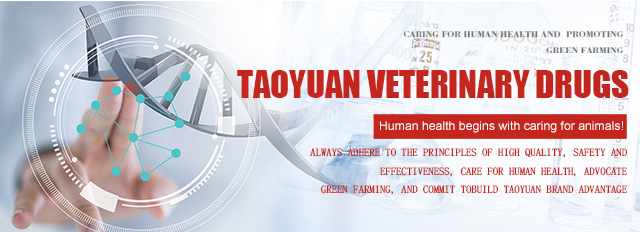Guang xi Nanning Taoyuan Veterinay Drugs Factory
桂ICP备14012533号-1 Powered by www.300.cn supports IPV6
NEWS DETAIL
Special management of antibiotics should be implemented to strictly limit the use in the breeding industry
Release time:
2019/12/20
Page view:
"China has become the country that uses the most antibiotics in the world, and even antibiotics are found in food and feed." At this year's National Congress, Ma Wenfang, a deputy to the National People's Congress and a doctor in Su Liuzhuang Village, Dagang Li Township, Tongxu County, Henan Province, called for Special management of antibiotics is implemented to prevent abuse of antibiotics.
Representative Ma Wenfang introduced that due to economic benefits, some doctors are willing to use the latest and highest-end antibiotics for patients, and patients are also willing to use the new broad-spectrum antibiotics recommended by doctors because of the "immediate effect". The result is that patients After encountering "high drug costs", "high drug resistance" also developed. In terms of food safety, if the abuse of antibiotics is not restricted, contaminated food will seriously harm the health of the general public. In addition, the use of antibiotics in the breeding industry will cause antibiotic residues in animals to enter the body and accumulate, leading to pathological changes in organs.
Ma Wenfang suggested that in drug control, antibiotics should be included in the scope of special management, and the control and supervision of antibiotics should be strengthened. In particular, the use of antibiotics in the aquaculture industry should be strictly restricted, and the use of antibiotic residues in foods should be strengthened. Detection and follow-up to strengthen punishment for abuse of antibiotics.
Uniform purchase and sales to reduce drug prices
"There are still big problems related to the purchase and sale of drugs in China." Gao Chunfang, member of the CPPCC National Committee and director of the First Fiveth Central Hospital of the Chinese People's Liberation Army, suggested that the establishment of a national drug purchase and marketing mechanism can promote the smooth progress of medical reform.
People's mediation to resolve disputes
Medical disputes in China have become a hot issue of concern to all sectors of society. Zhang Zhigang, deputy to the National People's Congress and director of the Second Hospital of Tangshan City, Hebei Province, said that the implementation of the "Medical Accident Management Regulations" for the past ten years has clarified three ways to resolve medical disputes: self-negotiation, administrative mediation and civil litigation, but at present Limitations arise, and it is urgent to embed people's mediation into the medical dispute resolution mechanism.
Hospitals don't pursue "big and complete"
In recent years, the blind expansion of many urban hospitals in China has intensified. Hospitals have blindly pursued "big and comprehensive", emphasizing "people have me". The representative of the National People's Congress and director of pediatrics of the Affiliated Hospital of Zunyi Medical College of Guizhou Province suggested that intervention in the allocation and setting of city hospitals should be coordinated, and special medical "check-up centers" should be planned in an overall way to curb excessive concentration of medical resources and unreasonable allocation of health resources.







